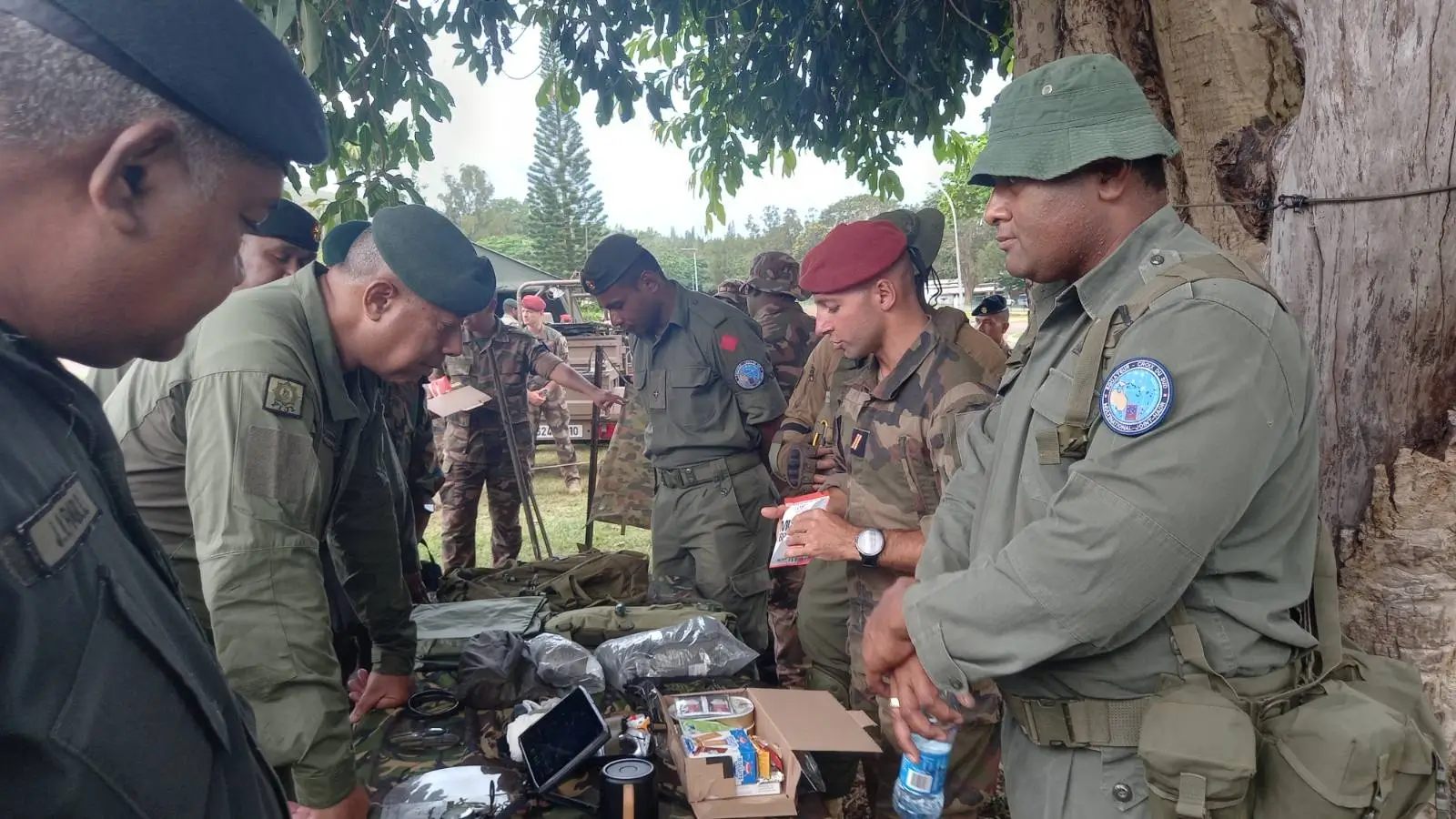
The Republic of Fiji Military Forces (RFMF) participated in the 2025 edition of Exercise Croix du Sud, a major civil-military training event hosted by the French Armed Forces in New Caledonia (FANC). The exercise, held biennially, is one of the Pacific’s largest disaster response simulations and focuses on strengthening coordination among defence and emergency services across the region.
This year’s operation extended for the first time to Wallis and Futuna, marking the largest deployment of defence personnel to the islands since World War II. The expansion underscores increasing regional cooperation to address the unique vulnerabilities of remote island communities during humanitarian emergencies.
Fiji deployed a platoon and several staff officers for the exercise. On Futuna Island, the Fijian troops carried out simulated clearance and security operations, including infrastructure protection and community access assessments. These were part of a broader humanitarian scenario replicating the aftermath of a tropical cyclone, with extensive infrastructure damage and isolated communities.
RFMF personnel worked alongside forces from Australia, France, New Zealand, the United States, Japan, Tonga, and other Indo-Pacific nations, enhancing interoperability and showcasing Fiji’s growing role in regional disaster preparedness.
Commander of the RFMF, Major General Ro Jone Kalouniwai, visited the troops in Wallis and Futuna during the official VIP Day. He praised the soldiers for their professionalism, noting that such exercises help strengthen both operational capacity and international defence relationships.
“Exercise Croix du Sud provides an invaluable platform for building interoperability, mutual trust, and operational readiness,” Major General Kalouniwai said. “Fiji’s presence reflects our commitment to humanitarian operations and deepening defence partnerships across the Pacific.”
The deployment offered a practical training environment for junior officers to operate in complex, multinational settings – skills considered essential for future humanitarian and disaster response efforts.
Fiji’s participation aligns with its national strategy to bolster disaster response capabilities in the face of climate change and increasing weather-related risks across the Pacific.